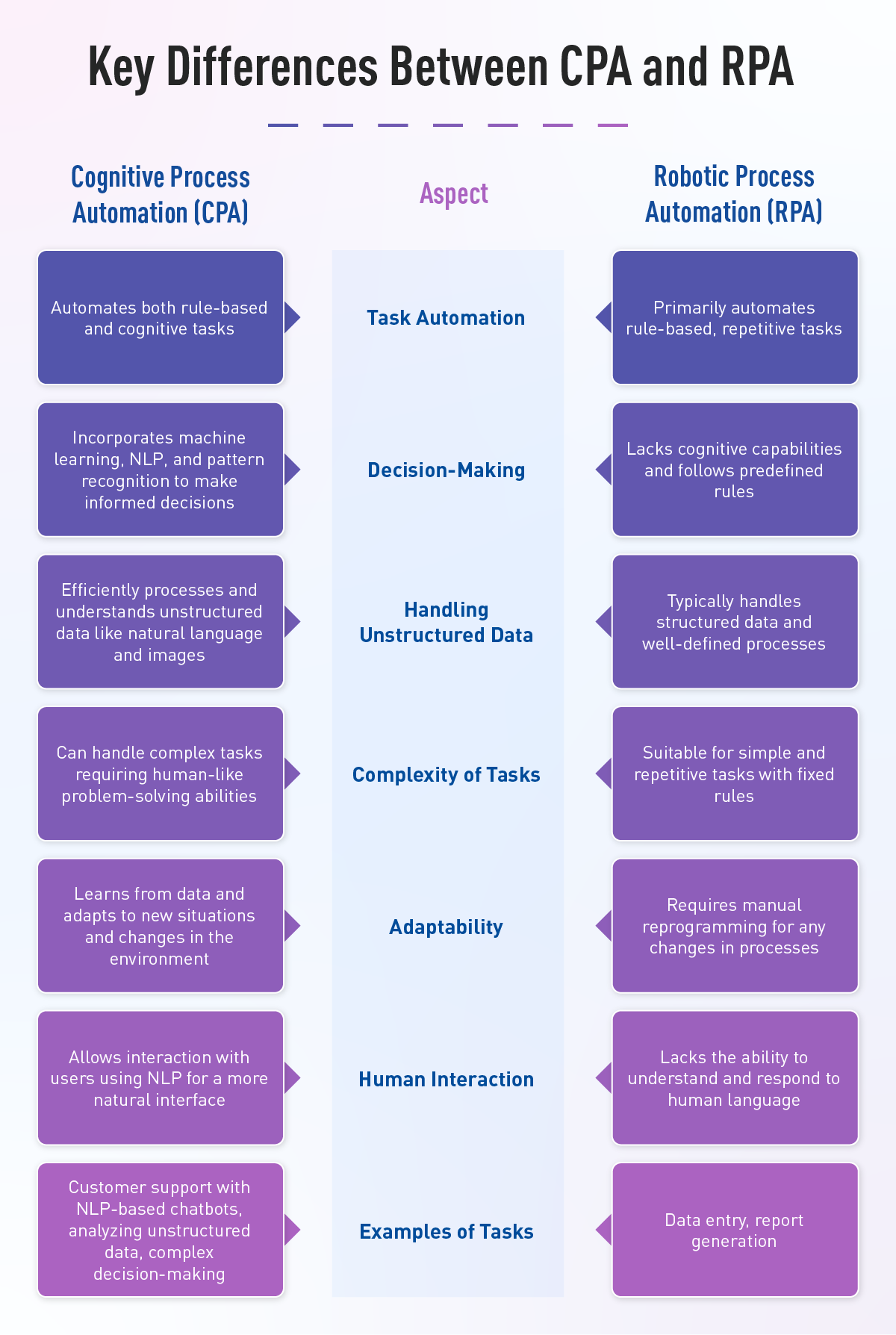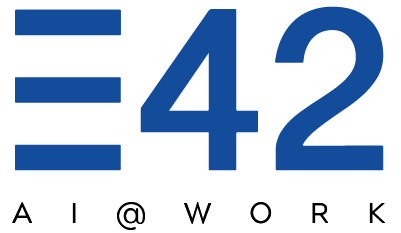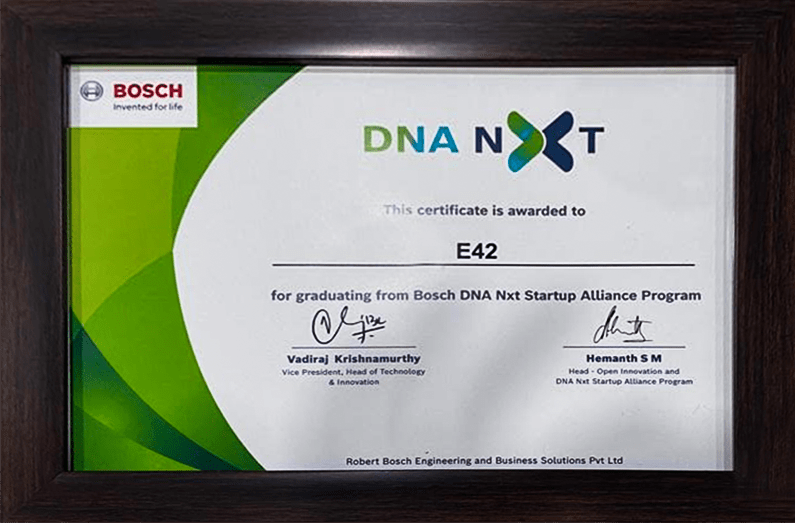There is a prevailing belief that emerging AI technologies, such as Cognitive Process Automation (CPA) or Large Language Model (LLM) based generative AI tools would lead to job displacement and workforce anxiety by replacing humans in various roles. However, this perception is far from accurate. AI-led tools, like CPA, are not designed to replace human labor. Instead, they aim to empower and augment human capabilities, fostering a harmonious partnership between humans and AI in the workforce.
According to McKinsey, the landscape of workplace activities is evolving as companies embrace the concept of ‘unbundling’ and ‘rebundling’ tasks. Their survey shows that 40 percent of automation and AI extensive adopters plan to reallocate tasks from high-skill workers to those with lower skill levels, enabling more efficient use of workforce qualifications. This transformation not only boosts productivity but also creates a fresh array of middle-skill jobs, often referred to as ‘new-collar’ roles. For instance, with the advancement of technology, data analysts now handle tasks that were traditionally done by statisticians, such as data interpretation and trend analysis.
In this article, we will delve into the world of CPA, exploring how it complements human intelligence, revolutionizes work processes, and opens new possibilities for businesses and their workforce.
A glance at all that this article covers:
What is Cognitive Process Automation and How’s it Different from Robotic Process Automation?

Cognitive Process Automation represents the cutting-edge fusion of artificial intelligence (AI) and automation, empowering humans in their work endeavors. With its advanced features like Natural Language Processing (NLP), CPA-enabled solutions can comprehend human language and context, facilitating seamless interactions with users. Intelligent Document Processing (IDP), a form of intelligent automation enables accurate data extraction from various documents, streamlining information processing. CPA’s adaptive learning ensures continuous improvement, allowing it to adapt to dynamic business scenarios. By harnessing the power of NLP, IDP, and adaptive learning, CPA tools liberate humans from mundane and time-consuming tasks, enabling them to focus on higher-value initiatives and fostering a more productive and efficient work environment.
On the other hand, Robotic Process Automation (RPA) served as the predecessor to CPA, laying the foundation for intelligent automation. RPA is designed to automate repetitive, rule-based tasks by mimicking human actions on user interfaces. While RPA significantly improved operational efficiency, it lacked the cognitive capabilities required to handle complex tasks that involve unstructured data and decision-making.
Why do Enterprises Imperatively Require CPA?
The advent of the digital era and the disruptive changes in consumer expectations and the overall business landscape have made CPA vital for enterprise process automation.
Complex Consumer Expectations
In today’s consumer landscape, customers have higher expectations for personalized experiences and seamless interactions with businesses. To meet these demands, enterprises must analyze and process vast amounts of customer data to gain valuable insights and deliver tailored solutions—which is most likely to become arduous if attempted manually in the absence of intelligent automation.
Supply Chain Fragmentation
The modern supply chain is complex and involves multiple stakeholders, making coordination and management challenging. With CPA, enterprises can optimize supply chain operations, improve inventory management, and ensure timely deliveries, ultimately streamlining the entire supply chain process.
Greater Cost Pressures, Smaller Margins
Businesses are facing intense cost pressures and are operating on tighter profit margins. CPA allows companies to automate repetitive and time-consuming tasks, minimizing errors, and increasing overall productivity. By adopting CPA, enterprises can operate more cost-effectively, maximizing their resources and achieving better financial outcomes.
Enhancing Enterprise Efficiency With CPA-Powered AI Co-Workers
In the rapidly evolving business landscape, CPA tools are empowering enterprises to revolutionize their operations. With AI co-workers at the helm, businesses are experiencing a remarkable return on investment (ROI) with intelligent automation of a multitude of processes. Take the Accounts Payable (AP) cycle in finance operations for example—AI co-workers built for the finance function intelligently streamline the AP process by extracting invoice data, validating information, and routing for approvals, while NLP and IDP capabilities enhance invoice processing through natural language understanding, reducing manual intervention.
CPA-driven intelligent automation can take care of both attended automation wherein machines work with humans to help them take care of transactional tasks as well as unattended automation in which machines work for humans independently, without the need for intervention, looping humans only in case of rare escalations. Another example of such two-fold, seamless automation would be in the customer success domain, wherein human workers collaborate with AI co-workers, allowing customer support representatives to access relevant information swiftly and deliver exceptional service experiences, resulting in personalized interactions and seamless customer experiences across multiple touchpoints.
Similarly, in the talent acquisition process of the HR arm of any enterprise, the workload of managers can be exponentially simplified by integrating AI co-workers that can speedily accomplish a mountain of tasks in a much shorter time span—automating document collection, form filling, and access provisioning, and ensuring new employees experience a smooth and efficient onboarding process, facilitating a seamless transition into the organization.
How Will Enterprises Navigate the Transition from Traditional Operations to AI-Driven Automation?
Embracing cross-functional collaboration and agile teams is the answer. As organizations adopt Cognitive Process Automation tools and make diverse verticals intelligent, the traditional organizational setup is bound to undergo significant transformations. The shift will be towards cross-functional and team-based work, fostering greater collaboration and agility in decision-making. Teams will seamlessly integrate AI-powered tools into their workflow, optimizing processes and driving better outcomes.
This paradigm shift will have notable implications for hiring, retraining, redeployment, and contracting. As businesses embrace automation, they may need to hire new talent with specialized skills to manage and oversee the AI systems. Simultaneously, existing employees might require retraining to effectively collaborate with AI co-workers and harness their full potential.
Redeployment will be a key strategy to reallocate resources and streamline operations, ensuring a smooth transition into the AI-driven era. Additionally, the rise of cognitive automation could lead to an increase in the gig economy, as companies engage independent contractors for specific tasks, maximizing flexibility and expertise. Embracing this transformational era with agility and foresight will empower organizations to thrive in the digital age.
Exploring Ethical Considerations and Scalability When Selecting CPA Tools
In the process of choosing a CPA tool, organizations should carefully consider several factors. Ethical considerations are of utmost importance, ensuring that the tools align with established guidelines and data privacy regulations to maintain stakeholder trust. It is essential to assess how well the CPA tools integrate with the existing system and application lifecycle management (ALM) practices to ensure seamless implementation. Additionally, scalability should be a key criterion, selecting tools that can handle increasing workloads and support the organization’s growth. Evaluating these aspects will enable organizations to make informed decisions and select the most suitable CPA tools for improved productivity and efficiency.
Conclusion
Cognitive Process Automation tools are reshaping the future of work, harnessing advanced technologies to replicate human-like understanding, reasoning, and decision-making. Realizing its full potential requires enterprises to address various challenges, including data quality, privacy, and change management. By fostering seamless collaboration between humans and AI, businesses should embrace the transformative potential of CPA, combining human expertise with machine capabilities to achieve extraordinary results and unlock unprecedented levels of productivity and competitive advantage.
Make your Enterprise Intelligent with E42
E42 is a no-code Cognitive Process Automation (CPA) platform to create multifunctional AI co-workers that automate enterprise functions across verticals and domains ranging from automobiles and BFSI to telecom, manufacturing, and more. By maximizing efficiency and scalability, and minimizing the human workload, E42 is disrupting the enterprise automation space to deliver a hassle-free user experience. To kickstart your enterprise automation journey, write to us at interact@e42.ai!



